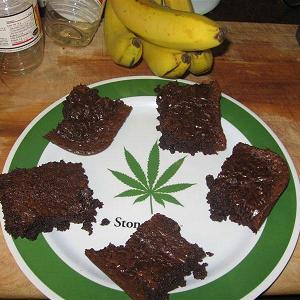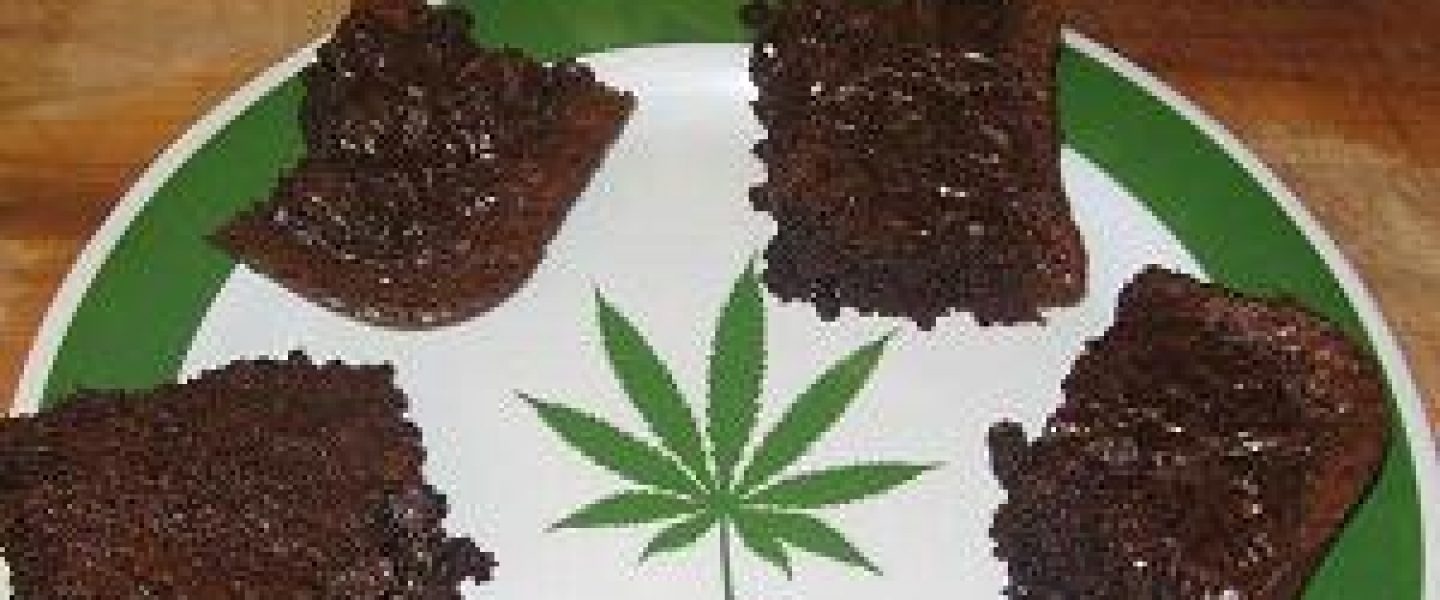 The legal status of your medicated brownie now depends on the kind of pot used when it was created, according to the Michigan Court of Appeals. If it was made exclusively with dried useable flower, it’s a protected medicated food under the Medical Marihuana Act (MMA); if it was made with a concentrate created from those flowers, or from cannabutter, it is just marijuana and could put even registered patients in trouble.
The legal status of your medicated brownie now depends on the kind of pot used when it was created, according to the Michigan Court of Appeals. If it was made exclusively with dried useable flower, it’s a protected medicated food under the Medical Marihuana Act (MMA); if it was made with a concentrate created from those flowers, or from cannabutter, it is just marijuana and could put even registered patients in trouble.
Confused? You’re not alone.
The case before the Court was People v Carruthers, which originated in Oakland County. The defendant was stopped while driving; he had both dried, useable marijuana flowers and brownies he conceded were created with cannabutter, an extract made by heating cannabis flowers in a pan of butter and straining the mixture. These extracts, and their cousins the concentrates, are created from useable, dried marijuana flowers and are refined by removing the essential plant chemicals from useless vegetative material through a variety of processes.
The Court of Appeals decided that the dried flower was ‘useable marijuana’ according to one section of the MMA; the brownies were not legally ‘useable’ because they were created with cannabutter, but they would have been if baked using ground-up cannabis flower and a stick of butter. By combining the butter and cannabis before they were added to the brownie mix, Carruthers’ brownies are somehow less medical than those prepared with green grit that catches in your teeth.
Still confused? I though so.
NEW DEFINITION OF USEABLE MARIJUANA VS MARIJUANA
The MMA lists useable marijuana in Section 4, describing that patients are immune from prosecutions when they possess useable marijuana in accordance with the MMA. The COA determined that by not including phrases contained in the definition of marijuana used in the Public Health Code, the drafters of the MMA intentionally excluded extracts and other products made from the resins of the plant from being defined as ‘useable’.
By excluding resin from the definition of “usable marihuana,” as contrasted with the definition of “marihuana,” and defining “usable marihuana” to mean only “the dried leaves and flowers of the marihuana plant, and any mixture or preparation thereof,”MCL 333.26423(k) (emphasis added), the drafters clearly expressed its intent not to include resin, or a mixture or preparation of resin, within the definition of “usable marihuana.” It therefore expressed its intent not to include a mixture or preparation of an extract of resin.
The flowers contain resin. Use that resin in an unadulterated form and you can count on the MMA’s standard protections. If that resin is extracted through heating it in lipids (butter) or through an alcohol or glycerin wash (tincture) it is not protected under Section 4-s definition of ‘useable marijuana’ and if charged, the patient will need to endure the long process of a Section 8 hearing, where the MMA allows protection for possession of just ‘marijuana’.
This is a completely new definition for marijuana extracts and flower-only uses. Prosecutors in the Carruthers case believed that all brownies containing marijuana are useable. The Prosecution themselves disputed the COA’s interpretation, as explained in the decision itself:
We also are not persuaded by plaintiff’s argument that our interpretation of the MMMA’s definition of “usable marihuana” is contrary to the ordinary and customary meaning of the term.
This interpretation was not advanced by the trial court judge, the defense nor the prosecution and comes more than 4 years after the Act was implemented.
Attorney John Targowski said, “It’s a rather alarming opinion that will force more users to smoke marijuana flower instead of vaporizing oils or eating edibles. Voter initiated laws like the MMA receive broad deference by the courts when deciding so called grey areas, and its pretty obvious that the promotion of the health and welfare of Michigan medical marijuana users is consistent with immunizing them for possession and use of non smokable forms of medical cannabis. This opinion takes the opposite approach, by finding such extractions to be more dangerous than dried flower or leaf.”
WHAT KIND OF BROWNIES ARE PROTECTED BY THE MMA?
Medibles are protected under Section 4 of the MMA, according to the court, “provided that the edible is a mixture or preparation” of “the dried leaves and flowers of the marijuana plant” rather than of the more potent THC that is extracted from marijuana resin.
The COA opinion repeatedly emphasizes that modern technology cannot differentiate the potency of THC used in the creation of a tested medible. This calls into question the legal definition of all medibles. Since you cannot tell a Section 4 compliant brownie from a non-Section 4 brownie by looking or testing, perhaps this ruling gives law enforcement the excuse they need to seize all medibles under the assumption that they were created improperly.
There is no way to prove a medible’s conformity to Section 4 ‘useable’ definitions except the word of the person that created the medible; see ‘Labeling Challenged’ section below to see what the COA thinks of that idea.
Targowski writes: “..after the Jones opinion in the COA, (discussed at length on last night’s Planet Green Trees radio show), which makes the court the sole determinant of Sec. 4 compliance, this effectively makes (1) edibles of all kinds under suspicion of being non-immune and (2) immunity itself under sec 4 being watered down.”
THE RULING SPECIFICALLY TARGETS CONCENTRATES
The language of the MMA itself wasn’t the only factor in deciding marijuana extracts concentrates do not fall into the Section 4 definitions and protections. From the COA decision:
Given the heightened potency of the THC extract, as compared with “the dried leaves and flowers,” this definition of “usable marihuana” (for purposes of establishing limited section 4 immunity) strikes us as a sound and reasoned mechanism to promote the “health and welfare of [Michigan] citizens.” It also provides an essential mechanism for implementing the voters’ desire to continue prosecutions for possession and use of marijuana in excess of that which is permitted for “medical use.”
The ‘heightened potency’ of marijuana extracts was a factor in their exclusion from the Section 4 definition of useable.
This is a decision that could have been written by Michigan AG and marijuana foe Bill Schuette himself. Without changing the language of the Act, without undergoing any legislative hurdles or legal proceedings or public testimony, the COA has altered the 4-year old interpretation of the Act to both create and eliminate from protection a new set of extract substances that law enforcement has struggled to identify and deal with.
Law enforcement, 1. Sick and injured Michigan voters, 0.
The Michigan State University Students for Sensible Drug Policy issued this statement: “Today’s Michigan Court of Appeals ruling goes contrary to the intent of the MMMA, as passed by the voters in 2008. The act was meant to provide safe access to medical cannabis for some of our state’s most vulnerable citizens. Denying access to medical cannabis extracts, and edibles containing them, will greatly harm the many patients who have depended on these products as their main source of pain relief.”
THE LEGALITY OF EXTRACTS AND CONCENTRATES
In determining that extracted compounds are not ‘useable marijuana’, the Court may have decided the legality of marijuana wax, Rick Simpson Oil and butane hash oil. If these products are still considered to be marijuana and covered under Section 8, but are not in conformity with Section 4 definitions, are patients who possess them protected from arrest? Are those products protected against seizure by the police? Is a caregiver who is manufacturing a concentrate guilty of a crime? What about personal vaporizers that use cannabis concentrates- are they still legal?
“(The Opinion) stands for the premise that you can be successfully prosecuted for possession of such extract based edibles and you have to fight that prosecution under sec 8, which is an expensive and complicated process,” said Targowski.
The COA states that their new definition “provides an essential mechanism of… continue(d) prosecutions for possession and use of marijuana…” That can be interpreted to mean this decision creates a mechanism for police and prosecutors to arrest and charge patients in possession of the extracts for violating the new legal definitions created by the COA, thus curtailing the ‘excess’ possession problem cited by the COA judges.
“I’m interested to see what the next Michigan State Police Update has to say on these subjects,” said Southfield attorney Michael Komorn.
LABELING CHALLENGED
A marijuana brownie’s entire weight is counted against the patient’s 2.5 oz weight restriction, the Court affirmed. Chemical testing is at the heart of the matter. A chemist testified during the preliminary exam that modern technology can detect cannabis in a product but not determine how much THC that product contains. In the absence of chemical methods of determining quantitative THC content, and with respect to similar controlled substance laws relating to other drugs, the Court affirmed the total weight of marijuana edibles can be used to determine a patient’s compliance with Section 4.
The defendant’s brownies and cookies were all labeled with gross weight and marijuana content, and the defendant suggested those figures be used in determining the amount of useable marijuana in his possession. The COA considered this idea ”absurd”, and said, “we find no support in our precedent for the notion that the amount of a controlled substance possessed should be established by a defendant’s self-report.”
Attorney Jeffrey Hank of Lansing, principal in the Safer Lansing effort to put decriminalization of marijuana on that city’s ballot in 2014, said, “There is only one solution to all this nitpicking nonsense. Full legalization. The American people have become feeble and conditioned to accept that you cannot grow a plant and experiment scientifically with it however you so please, as long as you do not actually harm someone else by a real crime or tort in the process.”
Other media outlets seem to have missed the mark on this subject. MLive incorrectly states that THC-laced edibles are only immune from illegality if “they contain plant material.” Detroit News falsely reports: “The weight of brownies and other edibles laced with a marijuana extract cannot be counted toward total weight limits of cannabis possession under Michigan’s medical marijuana law…” Major news outlets in the state are struggling to interpret this ruling, as will the public and registered patients. The lack of clarity provided by the Appellate Court will unnecessarily create more improper arrests and generate more work for an already-overburdened court system.
I am starting to believe that COA really stands for ‘Circus of the Absurd’.
View the Court of Appeals decision at the link below:
20130711_C309987_37_309987.OPN
Source: The Compassion Chronicles







